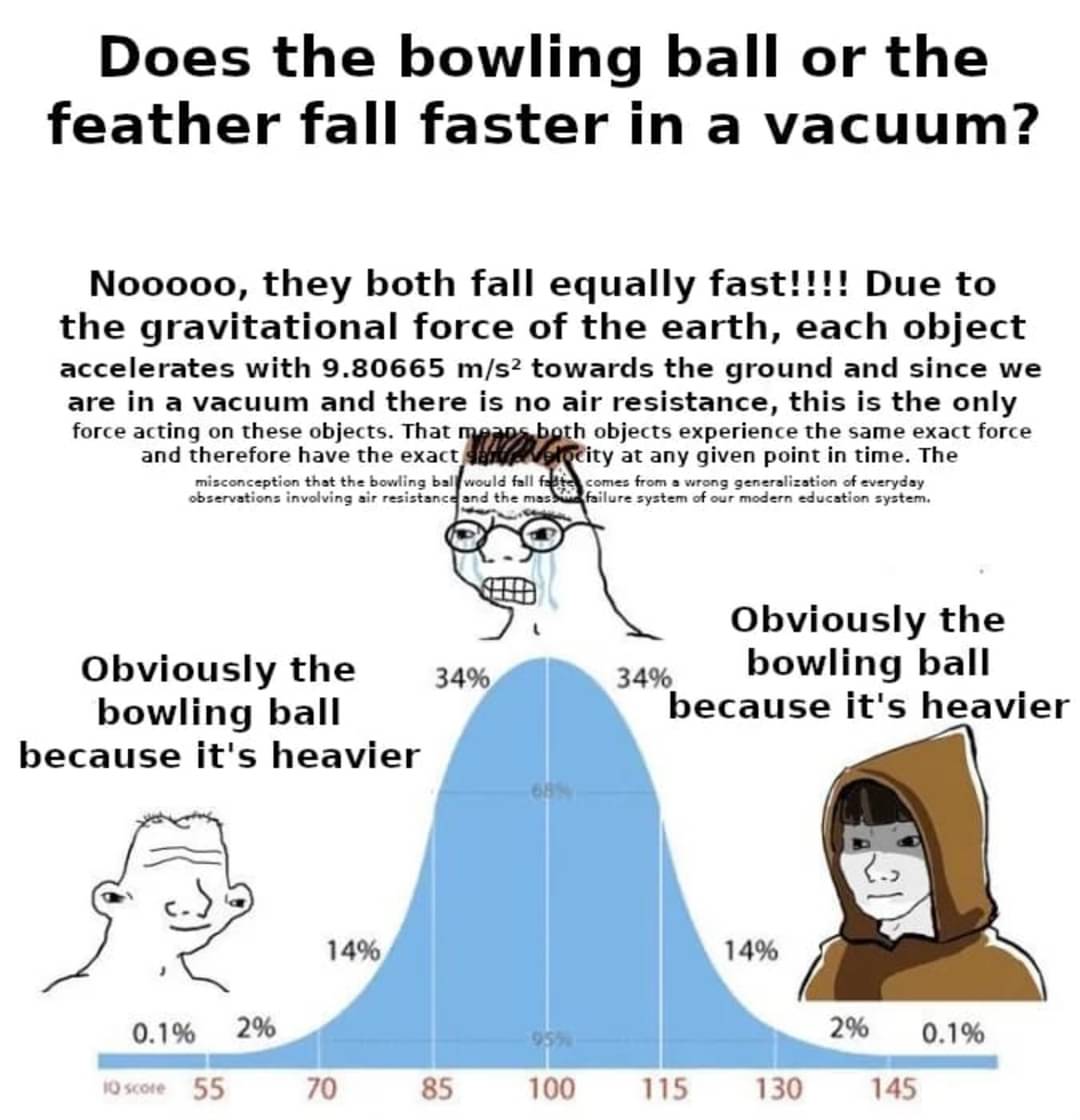this post was submitted on 28 May 2024
216 points (89.4% liked)
Science Memes
12359 readers
2755 users here now
Welcome to c/science_memes @ Mander.xyz!
A place for majestic STEMLORD peacocking, as well as memes about the realities of working in a lab.

Rules
- Don't throw mud. Behave like an intellectual and remember the human.
- Keep it rooted (on topic).
- No spam.
- Infographics welcome, get schooled.
This is a science community. We use the Dawkins definition of meme.
Research Committee
Other Mander Communities
Science and Research
Biology and Life Sciences
- [email protected]
- [email protected]
- [email protected]
- [email protected]
- [email protected]
- [email protected]
- [email protected]
- [email protected]
- [email protected]
- [email protected]
- [email protected]
- [email protected]
- [email protected]
- [email protected]
- [email protected]
- [email protected]
- [email protected]
- [email protected]
- [email protected]
- [email protected]
- [email protected]
- [email protected]
- [email protected]
- [email protected]
- !reptiles and [email protected]
Physical Sciences
- [email protected]
- [email protected]
- [email protected]
- [email protected]
- [email protected]
- [email protected]
- [email protected]
- [email protected]
- [email protected]
Humanities and Social Sciences
Practical and Applied Sciences
- !exercise-and [email protected]
- [email protected]
- !self [email protected]
- [email protected]
- [email protected]
- [email protected]
Memes
Miscellaneous
founded 2 years ago
MODERATORS
you are viewing a single comment's thread
view the rest of the comments
view the rest of the comments

I get that the heavier bowling ball affects the acceleration of the earth more than the lighter feather, but I don't see how that means it's falling faster as the meme is stating. The bowling ball would meet the earth first when dropped separately and from the same height because the earth is (imperceivably) accelerating toward it faster than it does the falling feather, but both the bowling ball and feather are falling at the same rate due to Earth's gravitational force.
Or am I missing something?
One definition for a "rate of falling" would comfortably be "the time it takes the surfaces of two free gravitational separated by some distance to meet." With this in mind, the imperceptible but very real difference in the acceleration of the earth towards the bowling ball would become part of that equation, as it shortens the distance between the two from the other side.
Think of it like a head on collision of two vehicles. You can do the math as two bodies colliding with opposite velocity vectors, or you can arrive at the same mathematical result (at least for some calculations) by considering one of them to be stationary and the other to have the sum of the two speeds in the direction of its original velocity. "Two cars colliding head on at 60mph is the same as one car hitting a brick wall at 120mph." It is rough and doesn't work for all calculations, but the idea is the same.
Mythbusters did this one and, surprisingly, the crash is way more fucked up at twice the speed on the wall
Yeah, that's why I used the heavy caveats. The wall produces an inelastic collision which will do WAY more damage as all of the energy is arrested rather than an elastic collision of the two vehicles in which a good portion of energy is spread between the two bodies as they separate.
Well, considering the scales, the difference is not only imperceptible, I'm pretty sure it's impossible to measure.